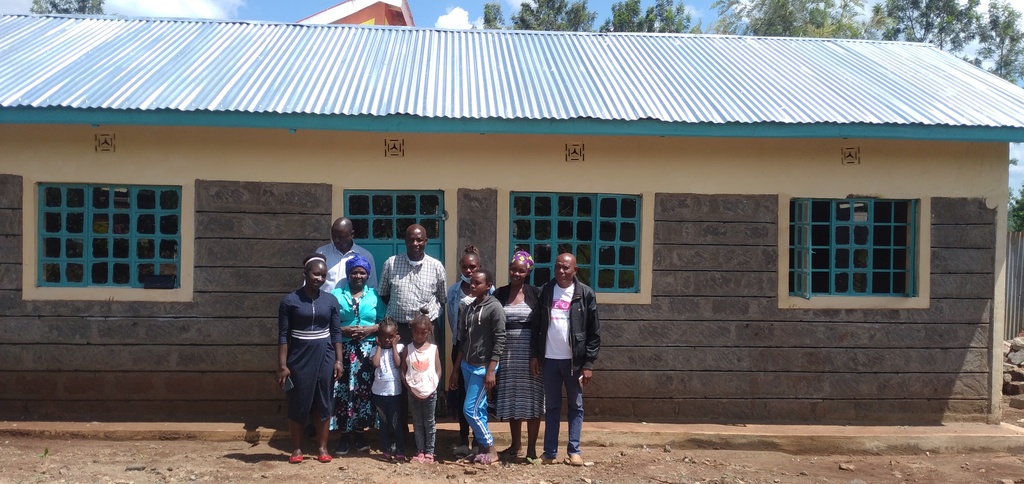In our efforts to support our target groups, we have identified several impactful programs for which we have sought funding, significantly enhancing our positive influence on society. These initiatives were inspired by the pressing need to improve the lives of slum dwellers. Our programs include:
- Education Support Program for Mathare Slum Dwellers
- Mathare Youth Empowerment Program (MYEP)
- Mathare Women Empowerment Program (MWEP)
- Mathare Teenage Mothers Program
- Slum Housing Program
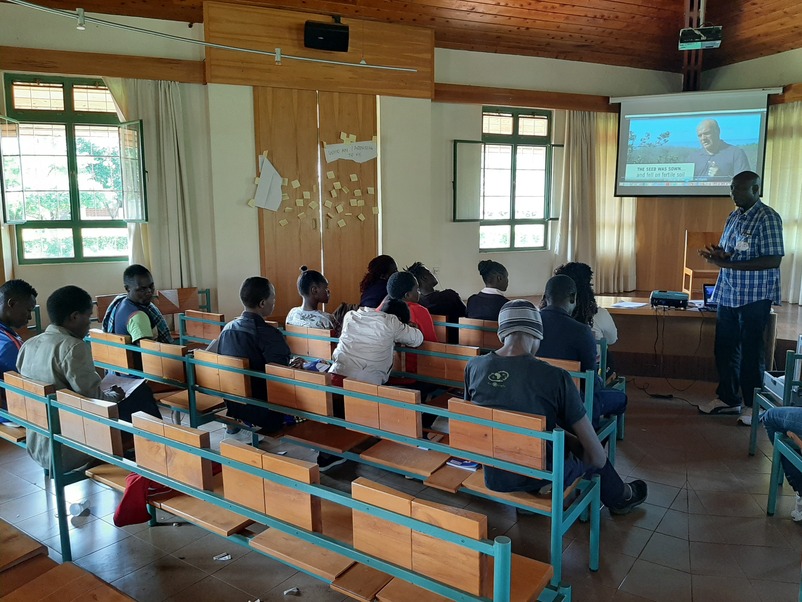
Education support for primary and secondary school is the core purpose of KTSSC. Since its inception, the project has helped over 750 children and youths.
Many girls and boys struggle to attend school, even if they live with their families. Their parents often lack the financial means to pay for education, and every breadwinner is essential for the family's income. Additionally, teaching materials in state schools often fail to meet the everyday needs of the community, and the curricula are largely irrelevant to their circumstances. The impact of poverty on education in East Africa remains one of the most significant challenges. For numerous young people, attending school is impossible due to work or family obligations, or they lack a conducive environment or facilities for studying at home.
Despite the daunting situation in the Mathare slums and other marginalized areas in Kenya, KTSSC believes that providing educational opportunities, mentorship, and entrepreneurship support is the most effective way to engage at-risk youth and help them break free from the cycle of poverty. KTSSC has witnessed successes and continues to build upon strategies that effectively alleviate this crippling issue. We invite anyone interested in serving the poor and oppressed to partner with us as we work to identify and empower at-risk youth in Mathare slums.
Given the challenging environment from which our cases arise, guidance and counseling becomes an integral part of our program. KTSSC provides basic guidance and counseling for children, youth, parents, and guardians. Each situation is assessed and appropriate action is taken based on information gathered through regular home and school visits, counseling sessions, and meetings. This approach promotes self-acceptance, enhances self-esteem, and motivates individuals to navigate various challenges. KTSSC is committed to alleviating poverty and fostering holistic personal development, and as such, the organization is expanding its activities to support more individuals in need and help them reclaim their dignity.
To address these challenges, KTSSC recognized the need to collaborate with like-minded organizations and individuals to support talented and underprivileged children in the Mathare slums through primary and secondary education. This vision led to the creation of the Education Support Program. We are actively seeking sponsors to partner with us in increasing our support efforts. Currently, there are 50 destitute and orphan children on the waiting list urgently in need of assistance.
We require approximately 550 Euros to educate one needy child for an entire academic year.
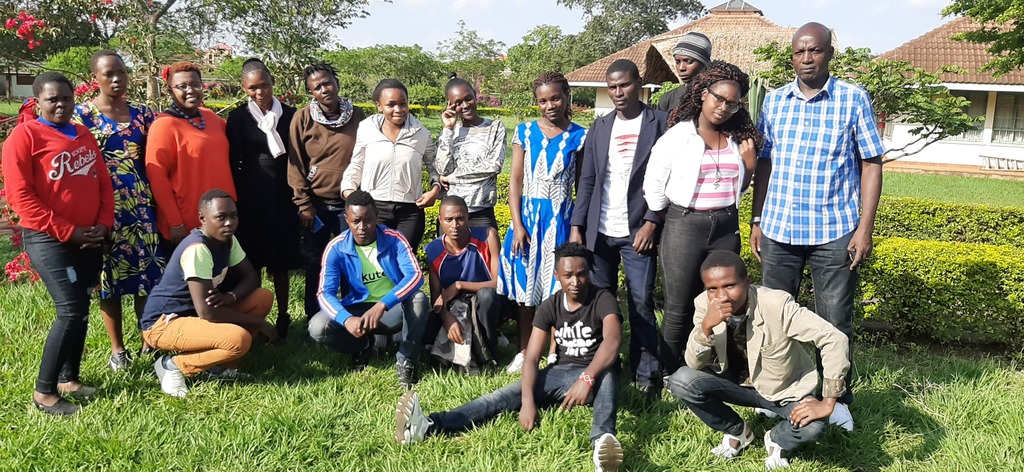
The lack of job opportunities for many young residents in slums has driven them to crime as a means of survival. According to the Institute for Development Studies (IDS), "The issues of under-policing, unemployment, and insufficient services in slums fundamentally stem from the powerlessness of slum dwellers, who struggle to connect with state authorities."
Amid this violence lies a crisis, says Aggrey Nyange, an urban planning expert at the University of Nairobi: displacement due to violent crime.
"Organized gangs and criminal elements within slums have left many residents homeless. Some individuals are marked by these gangs and find it nearly impossible to access their own homes, often because they refuse to pay protection fees. This is a distressing situation that must be addressed," Nyange explained.
He also emphasized, "People frequently discuss violence and crime, yet they seldom acknowledge the impact it has on victims."
As rural populations migrate to urban areas in search of economic opportunities, cities will continue to expand, necessitating that governments bolster efforts to ensure urban infrastructure, such as housing, can accommodate this growth.
OCHA's Kang noted to IRIN that "settlements in these urban slums are often spontaneous." He highlighted that governments in developing countries like Kenya will require both effective policies and the political will to track these populations and provide them with essential services.
There is a pressing need for initiatives aimed at building the resilience of slum dwellers.
Few children have the opportunity to attend school. Even when they live with their families, their parents often lack the financial means to support their education. Additionally, every breadwinner is vital to the family's income. State schools frequently fail to provide teaching materials that address the everyday needs of these communities, and curricula often lack relevance to their circumstances. The impact of poverty on education in East Africa remains one of the most significant challenges, preventing many young people from attending school due to work or family obligations, or leaving them without adequate places or facilities to study at home.
Despite the daunting situation in Mathare slums and other marginalized areas in Kenya, KTSSC believes that providing educational opportunities, mentorship, and entrepreneurship support is the most effective way to engage at-risk young people and help them escape the cycle of poverty. KTSSC has seen successes and continues to build on effective strategies for alleviating this crippling poverty. We invite those interested in serving the poor and oppressed to partner with us as we aim to identify and empower at-risk youth in Mathare slums. To tackle this challenge, KTSSC recognized the necessity of collaborating with like-minded organizations to support bright but underprivileged children in the Mathare slums through tertiary education. This collaboration led to the establishment of the Mathare Youth Empowerment Programme (MYEP).
The number of secondary school graduates has increased over time. Technical Training Institutions have emerged as a viable solution for integrating school leavers into the job market. The youth program has supported over 200 young people from Mathare, many of whom are now self-employed or have found jobs in both the formal and informal sectors. It requires €800 to fully train and equip one youth with a vocational skill.
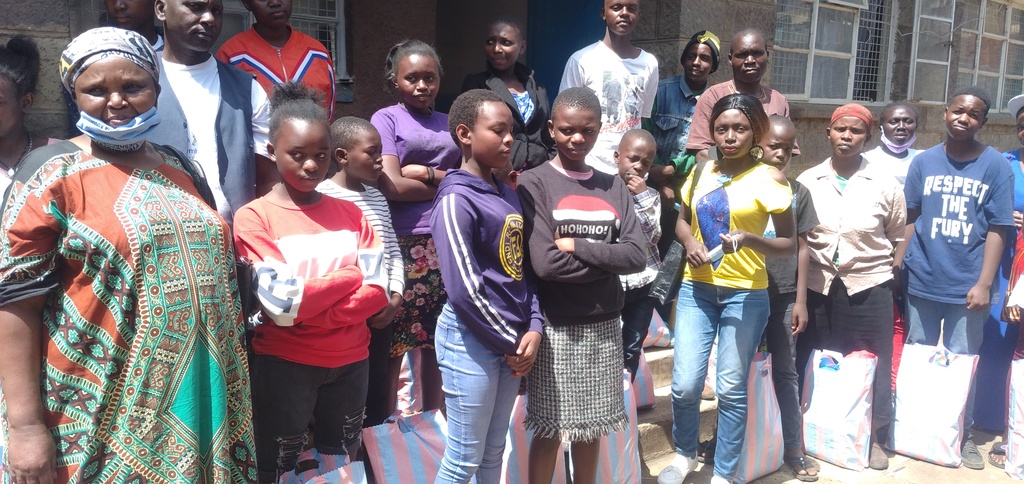
Paul Odero, a 27-year-old father of two living in Mathare, shared with IRIN, "Here, we share everything because no one can afford anything of their own. We share latrines, and the people selling food nearby have no space for their kiosks. They must set up close to the latrine because that's where any available space is."
He continued, "We have no proper place to dispose of our garbage, so we just throw it anywhere. Sometimes, you find children playing with used sanitary pads because women and girls have nowhere to dispose of them. As a result, children often get diarrhea, and many die."
Kyung-wha Kang, the deputy emergency relief coordinator for the UN Office for the Coordination of Humanitarian Affairs, expressed concern to IRIN about the overcrowded conditions in which people live without proper policing or electricity, stating, "This raises numerous issues, particularly regarding the safety of women and children. They only have access to minimal services, and the humanitarian challenges they face are overwhelming."
According to the UN World Health Organization, children living in Nairobi's slums are two and a half times more likely to die before their fifth birthday than those in other parts of the city.
Moses Owino, the district medical officer of health in Mathare, informed IRIN that nutrition and access to healthcare for children remain major challenges in urban slums.
"There are many young mothers who can barely afford to feed their children, resulting in a high prevalence of malnutrition among children under five. The health facility here can hardly meet the demand. HIV prevalence is also higher than the national average. Urban slums are experiencing a health crisis," Owino said.
Concern Worldwide notes, "The skyrocketing costs of food have pushed an already desperate population into extreme poverty, leaving them unable to feed their families or afford basic services like healthcare, rent, and school fees."
The organization further states, "With no land or means to grow their own food, slum residents are completely dependent on markets for sustenance. The price of maize, a staple food for the poorest, has risen by 133 percent over the past year, while incomes have dropped by 21 percent, forcing families to resort to desperate measures to survive."
In response, the Mathare Women Empowerment Project aims to improve life for slum residents by equipping women with entrepreneurial skills and providing seed capital to start small businesses. To date, this program has empowered 80 underprivileged mothers from the Mathare slums to develop and manage their own businesses.
To train and help one woman start a business in the Mathare slums requires €650.
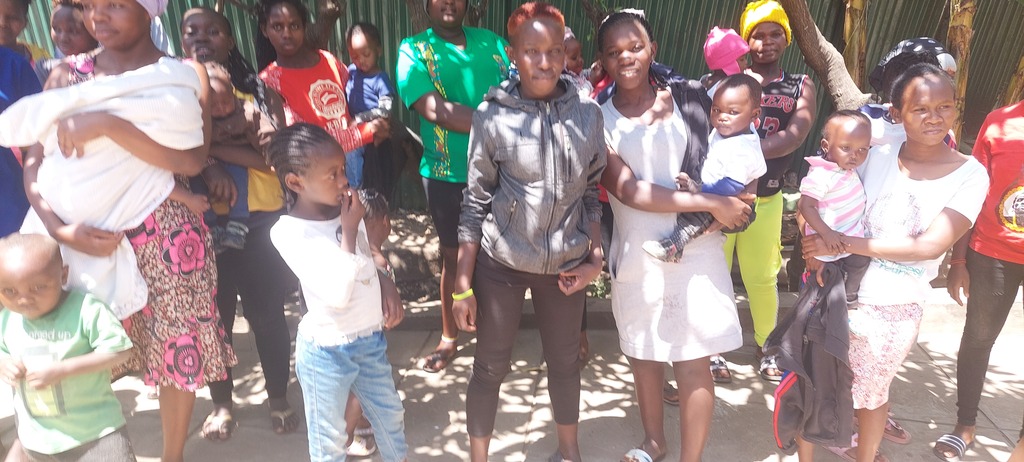
Mathare slums in Nairobi is just like other slum areas is faced with numerous problems relating to poverty and over congestion such as poor housing, high unemployment and dependency ratios, strain on available resources including essential healthcare, insecurity and high disease burden and prevalence.
Barely, few months of the Covid-19 pandemic seemed to produce an alarming upsurge in the number of teenage pregnancy cases being reported both to the local authorities in the area and to the health facilities offering maternity and other reproductive health services.
Almost all the 47 Counties in Kenya have been hard hit by the teenage pregnancy crisis. Latest statistics reveal that Nairobi County tops the list with 11,795 girls aged between 10-19 years reporting to be pregnant between the months of January and May 2020. The above chart is the distribution for top ten counties as per the June 2020 Report on the state of teenage pregnancy in the country:
Direct causes of this sudden upsurge in the number of teenage pregnancy cases being reported can be explained using Covid-19 pandemic as the core trigger.
Depressing economic times such as the one presented by the post Covid-19 pandemic, high inflation rates and hard economic times are known to push teenage girls from poor families into sexual activities in exchange for food and other forms of necessities including protection from suffering. Most often, this type of vulnerability is hard to prevent because the victims are pushed to the limits and have no other options left. A number of studies point out to the fact that sexual exploitation in the context of sex in exchange for food and other essentials is widely reported as vulnerable girls and their families struggle to meet basic needs especially in times of crisis. This could be a perfect reality of what is being experienced by the suffering Mathare residents.
Findings by the National Council for Population and Development (NCPD) support my hypothesis by confirming that approximately 26% of teen girls from poor households experience teenage pregnancy in comparison to 10% belonging to wealthier households. Poverty is actually a factor at play in Mathare Slums, Nairobi County. Teenage pregnancies have the cumulative effect of perpetuating the cycle of poverty which consequently lowers individual, social and economic development.
Covid – 19 pandemic generated a myriad of challenges to the slum dwellers. The government of Kenya put up measures to contain the spread of the pandemic. However, the slum dwellers couldn’t afford basic needs. In June 2020, Kenyan media exploded with a disturbing story, “Close to 4,000 school girls impregnated in Kenya during COVID-19 lockdown”. This propelled KTSSC to assess the situation of teenagers in Mathare slum. According to African Institute for Development Policy (AFIDEP) report indicate that Nairobi County was leading with 11,795 teenage pregnancies in the period Jan-May 2020. This confirmed that many teenage girls in the slums are at risk of becoming mothers.
Adolescent pregnancies are a global problem but occur most often in poorer and marginalised communities. Many girls face considerable pressure to marry early and become mothers while they are still a child. Teenage pregnancy increases when girls are denied the right to make decisions about their sexual and reproductive health and well-being. Girls must be able to make their own decisions about their bodies and futures and have access to appropriate healthcare services and education.
It is on this background that KTSSC decided to develop a project that would support the teenage mothers to acquire basic skills for human survival. Up to date, with the help of Fastenaktion, the project has empowered 40 teenage mothers from the slums of Mathare.
CAUSES OF TEENAGE PREGNANCY
Depressing economic times such as the one presented by the Covid-19 pandemic are known to push teenage girls from poor families into sexual activities in exchange for food and other forms of necessities including protection from suffering. Most often, this type of vulnerability is hard to prevent because the victims are pushed to the limits and have no other options left. A number of studies point out to the fact that sexual exploitation in the context of sex in exchange for food and other essentials is widely reported as vulnerable girls and their families struggle to meet basic needs especially in times of crisis. This could be a perfect reality of what is being experienced by the suffering Mathare residents.
Findings by the National Council for Population and Development (NCPD) support my hypothesis by confirming that approximately 26% of teen girls from poor households experience teenage pregnancy in comparison to 10% belonging to wealthier households. Poverty is actually a factor at play in Mathare Slums, Nairobi County. Teenage pregnancies have the cumulative effect of perpetuating the cycle of poverty which consequently lowers individual, social and economic development.
Adolescent pregnancies are a global problem but occur most often in poorer and marginalised communities. Many girls face considerable pressure to marry early and become mothers while they are still a child. Teenage pregnancy increases when girls are denied the right to make decisions about their sexual and reproductive health and well-being. Girls must be able to make their own decisions about their bodies and futures and have access to appropriate healthcare services and education.
It is on this background that KTSSC decided to develop a project that would support the teenage mothers to acquire basic skills for human survival.
Teen mothers face a myriad of challenges. They not only suffer from income poverty but also human that opportunities and choices most basic to human development are denied. Human poverty is more the denial of choices and opportunities most basic to human development to lead a long, healthy, creative life, acquire knowledge, and enjoy a decent standard of living, freedom, dignity, self-esteem and the respect of others.
These and many other stories of indignity against women informs KTSSC to empower the slum teen mothers on their human rights and potential as persons, women and contributors to the Kenyan economy through the Teenage Mother Sustenance Program. The program has already empowered 125 teenage mothers.
To fully train, mentor and empower One teen Mother It requires a total of €750.
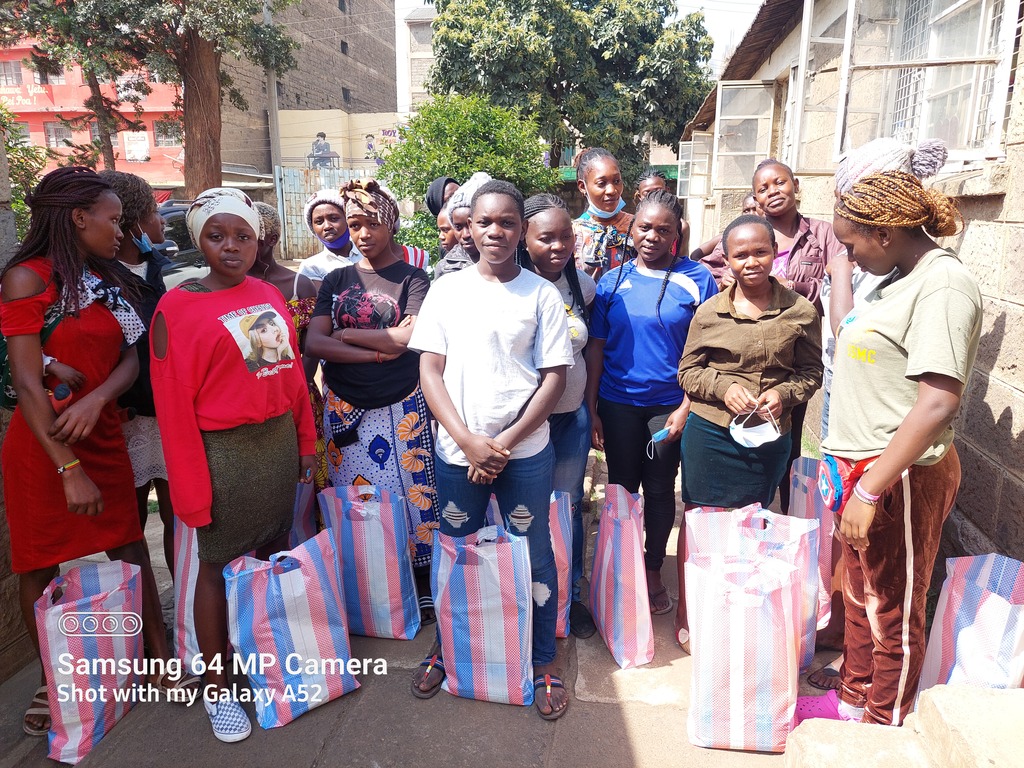

Our last visit to the home of Mama Wambui remains the last trigger of the next adventure that Ken Toledo Social Service Club (KTSSC) has embarked on. Mama Wambui lost her daughter recently to HIV/AIDS. She is left to cater for her two granddaughters. She is herself very old and sick. She is not able to work to feed her grandchildren. The children are not schooling and at their tender age have decided to drop out of school to beg from the streets, which is the source of income that sustains them. Our visit to her home left us wondering what we could do to help her. She affirms in our presence her desire to return to her ancestral land and to die there, rather than dying in Mathare slum.
Like Mama Wambui, there are many others living in the Mathare slum with dreams that may not be fulfilled without an external intervention. Even though on a very small scale, KTSSC launched her initial relocation plan and four families have been relocated from Mathare slums to Eastern and Western Kenya.
KTSSC therefore decided upon discussion with other stakeholders and beneficiaries to extend the range of her activities to include relocation program and socio-economic empowerment for six families from October year 2018.
In order to do this, KTSSC wants to capitalize on the acquired experience in managing education support program to implement relocation program. KTSSC therefore intends to face the problems plaguing the slum dwellers through education and socio-economic support which is perfectly in line with poverty eradication program (PEP), millennium development goals (MDGs) and the Kenyan Vision 2030.
Child upbringing in the African context is a community responsibility. However, due to challenges that accompany urbanization, many children are left without proper care be- cause their parents cannot provide for them. This made KTSSC to reflect on a strategic intervention that would im- prove the lives of families in the slums. After an assessment conducted among the families which had beneficiaries in KTSSC, it emerged that some families had parcels of land in their rural areas and were willing to relocate. This compelled the organization to initiate family relocation project targeting willing families from Mathare slum.
The organization has been able to relocate 8 families to different parts of the country with the help of international partners. KTSSC constructs permanent houses for these families and help them to kick start their new life in the rural setting which is more bearable than in the slums. To build a single permanent house in the rural areas, it will require a total of €14,000
Desperation and stigma have seen families languish in the slums though they have a piece of land back in the rural villages. Urban Rural Reintegration) has provided a stop gap measure where we have had a pilot project for relocation of 9 families. This have improved the quality of life of the cases relocated.
